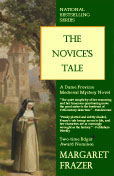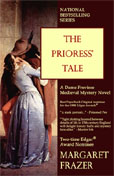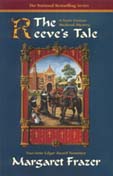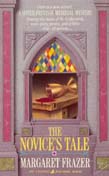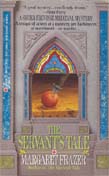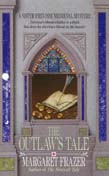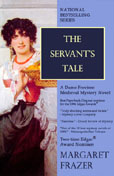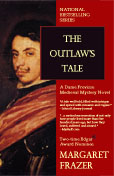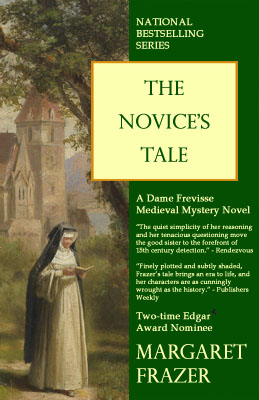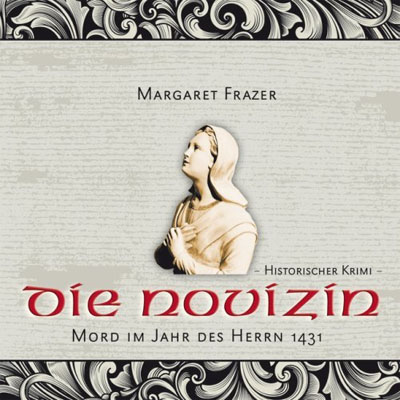The place within the cloister where the world most boldly intruded was the kitchen. It was a squat, ugly room with two big roasting fireplaces and a bake oven in its farther wall, sturdy locked pantry cupboards against the other walls, and an array of heavy tables in its middle for the carving, mincing, kneading, mixing, setting out, and gathering in of whatever needed preparation for the meals of the day. Nor was there any pious silence here. Because there was such necessary work to be done – mostly by lay servants not under vows – the rule of silence did not hold; instead of hand signals and nods, there was ordinary conversation broken by curt orders, the words mixed among a secular clatter of dishes, clang of heavy iron pots, ring of large stirring spoons tossed from pan to counter, slap of bread being kneaded, whisht of knives slicing at vegetables and, more rarely, meat. And over all of that was almost always Dame Alys’ big voice, stronger than the noise and kitchen odors. Dame Alys was cellarer, second only to Domina Edith in the priory. She was in charge of overseeing labor, land, and buildings, and since St. Frideswide’s was too small to have a kitchener under her orders, Dame Alys saw to that office, too – food and drink and firewood and the kitchen itself.
Word of Lady Ermentrude’s arrival had come this far already, and Dame Alys was in full cry. “So now we’re bound to cater to her drunk as well as stupid, are we? Her and that mighty baggage of followers.” Dame Alys slammed an iron stirring spoon down on a table to emphasize her wrath. Since she was a large-boned woman running to muscle rather than fat, the spoon bent visibly.
The three women servants cast looks at one another and went on with their business. Although Dame Alys’s rages were as immense and sincere as her penances, she seldom actually injured anyone in them. But she was always more interested in venting spleen than in being soothed or hearing anyone’s helpful replies, and no one bothered saying anything.
Now, straightening the spoon between her hands, she pointed it at Thomasine hesitating in the doorway and said, “You’re come to tell me she’s asking for her dinner already, aren’t you? Well, you can tell her from me I need more warning than that to set a proper meal under her nose. Would to God it were in my power to serve her as she deserves. Spoiled fish and rotten apples, with ditch water for a drink, that’s what she’d have. And I’d stand over her with a cleaver to make sure she ate and drank it all!”
She paused to draw breath. Into the momentary lull Martha Hayward said, without looking up from a mixing bowl and whatever she was beating in it. “That would be enough to start a real feud between the Godfreys and the Fenners.”
“What say you?” Dame Alys said indignantly. “There’s been no bloodshed as yet, but there’s feud all right. And the blood will come soon, too, if they don’t stop pushing to take our property away from us!”
Martha, bold to grin at Dame Alys, said, “And meanwhile the lawyers’ cost enough to break both families. Aye, lawyers love a good quarrel between great families.” (more…)

